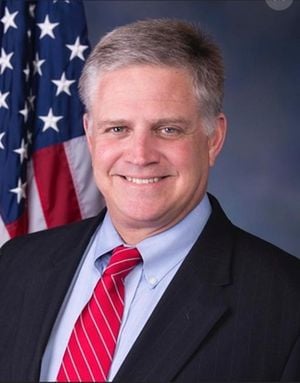In the world of television, few sequels face as much pressure as the second season of a hit series, especially when that series is The Last of Us, which captivated audiences with its record-breaking first season. The showrunners, Craig Mazin and Neil Druckmann, have taken this responsibility seriously, delivering a sequel that dives deeper into emotional and traumatic themes.
The Last of Us Season 2 premiered on April 13, 2025, at 9:00 p.m. ET, on platforms including HBO, Max, and Crave in Canada. This season consists of seven episodes and picks up five years after the dramatic finale of Season 1.
As the new season unfolds, we find Joel (played by Pedro Pascal) and Ellie (played by Bella Ramsey) living in the Jackson, Wyoming community, alongside Joel's brother Tommy (Gabriel Luna) and his wife Maria (Rutina Wesley). Ellie is now 19 years old and is navigating her transition from adolescence to adulthood, which complicates her relationship with Joel, who remains protective of her.
The arrival of Abby (Kaitlyn Dever) sets the stage for one of the season's central themes: revenge. While the first season focused heavily on survival against the infected, this season shifts its focus to the complex relationships between characters and the emotional turmoil they face.
Bella Ramsey, who portrays Ellie, has been praised for her performance, showcasing a broad emotional range as she navigates her character's evolving identity. Critics have noted that while the stakes are higher, the show remains grounded in character development rather than pure action. "Their performance is moving, heartfelt, powerful and at times they'll just take your breath away," remarked one reviewer.
Throughout Season 2, the tension between Joel and Ellie is palpable. Joel struggles with the lies he told Ellie about her immunity and the events surrounding the Firefly hospital. As Pascal noted, there is an "incredibly painful distance" between their characters, which adds to the emotional weight of the story.
As the season progresses, viewers will see significant developments in the lives of familiar characters. Tommy, who plays a larger role this season, is now a father to a young child, Benji, and must navigate the complexities of parenthood amidst the chaos of their world. Maria, who leads the Jackson community, is portrayed as fiercely protective, especially now that she has a child to care for.
New characters are also introduced, expanding the narrative universe of The Last of Us. Kaitlyn Dever's Abby is described as a skilled soldier driven by a desire for vengeance, challenging the black-and-white morality of the world they inhabit. The season promises to explore her character in depth, diverging from the video game narrative to offer a more nuanced portrayal.
Craig Mazin, the showrunner, emphasized that the season will contain shocking elements, but they are not included for shock value alone. "There are things that will shock people, things that were in the game, things that were not in the game, and that's okay," he stated. This approach aims to engage viewers while staying true to the story.
Moreover, the show continues to balance moments of despair with humor, as seen through Ellie's sarcastic remarks, which provide necessary levity in an otherwise heavy narrative. The emotional depth of the characters is further enhanced by the performances of the cast, including new additions like Catherine O'Hara, who plays Gail, Joel's therapist.
As the season progresses, viewers will witness the characters grapple with their pasts and the impact of their choices, particularly in the context of a post-apocalyptic world. The show remains committed to its core themes of love, loss, and the human capacity for both good and evil.
In addition to the core cast, several new characters will play pivotal roles in the unfolding drama. Jeffrey Wright returns as Isaac, a leader of a militia group, while Isabela Merced joins as Dina, Ellie's friend whose relationship with her adds another layer of complexity to the narrative.
As Season 2 unfolds, the stakes are undeniably high, and the emotional and dramatic moments promise to resonate deeply with viewers. The series has been picked up for a third season, allowing for further exploration of character arcs and storylines that have yet to be fully realized.
In summary, The Last of Us Season 2 is not just a continuation of the story but an evolution that delves into the intricacies of relationships and the psychological toll of survival. With its blend of heart-wrenching drama and moments of levity, this season is set to be a compelling watch for fans and newcomers alike.
As the series continues to break new ground as a successful video game adaptation, it remains a testament to the power of storytelling in all its forms. The emotional depth and character-driven narrative have solidified The Last of Us as essential viewing in today's television landscape.






